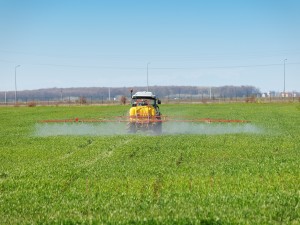What’s wrong with GM Crops?

The article below was sent in by Justin Fox and covers the GM debate really well. As far as BigBarn is concerned we see GM as dangerous, especially if controlled and developed by profit focused corporates.
Why GM Crops are not the immediate future of International Agriculture by Justin Fox
Much as the combination of the organic and artificial may seem unnatural to some, agriculture and technology are no strangers to one another. In a world beset by hostile climates, droughts, poverty and all other ills, it comes as no surprise that science is touted as the cure to all problems. If it can put a man on the moon, then providing enough food to go around should be simple enough right?
But as any scientist or inventor would tell you, ambitious solutions such as these did not spring out of the ground. For every success, how many failures had to pave the way for progress? Whilst an incredibly noble goal that could very well be fulfilled one day, GM crops at present are a symbol of how complacent we have become in regards to our health and nutrition. Perhaps it is a little paranoid to be so full of doubt but caution will serve us better than bull-headedness with such potential repercussions at stake.
Of course, to categorically state that GM crops are an irredeemable evil that must all be destroyed immediately would be to ignore the very real good things they can do.
In Vietnam for example, the country has put the horrors of the 60’s war behind it and is today showing rapid economic growth amongst the states of South Asia. Since they have permitted the usage of GM crops in 2015, the South of the country has increased agricultural productivity by between 16-25%, as new alterations have enabled crops to withstand the jungle climate and local fauna. With the effects of chemical warfare still lingering in the soil of the country, having produce capable of resisting any after-effects is crucial for Vietnam and other nations with a history of violence. GM crops could give them back the ability to domestically grow their own goods, for both internal consumption and external sale.

Watch out for roundup on food
This view that GM crops sit at the heart of reducing food scarcity is also prevalent within academic circles. For example, researchers at the National Academy of Science cautioned against the debate becoming tainted by ‘pre-existing highly polarized viewpoints’. In essence what they mean is whilst it’s easy to criticise such methods when you live in a developed country with plenty of food, you have to empathise with those who face a less stable reality.
Within the more developed European nations though, debate is more polarized. Factions within the EU Parliament were so opposed to one another over the issue of GM crops that the institution decided to let each member state make their own decision. Hopefully the move has led to a renewed oversight from respective governments into what exact modifications are being made, and a proper balance can be struck between freedom of research and political regulation.
With climate change and geopolitical issues becoming ever more significant and dividing communities throughout the world, the problem of how to feed the world’s population is likely to become one of the defining issues of the modern age. Already, the World Economic Forum ranks water scarcity as the single biggest risk to global stability, citing research which states that currently half the world’s population, around 4 billion people, experience some degree of water scarcity at least one month in every year. Add to this the problem of an ever-expanding global population, and it’s clear to see that the challenges faced by traditional farming are severe. It is not unimaginable that we will ultimately reach a stage in many parts of the world, where there simply is no choice but to embrace GM crops.

fake food
However just because no major disasters have occurred so far, doubters of the plant-science hybrid are yet to be convinced. Whilst all experiments are no doubt conducted in completely insulated laboratories and no new designs are released without thorough testing, all it takes is a single mistake or lapse in judgement to wreck an ecosystem or cause a massive health crisis. We see it with facilities such as power stations or oil rigs that are deemed completely safe, yet on occasion they malfunction despite the rigorous checks within the respective locales.
Besides, GM crops for all their advantages over traditional farming are yet to have solved the issues they were intended to. Scarcity of food, water and resources needed for sustenance still goes on around the world, all the while more developed countries sit atop more produce than we can eat and sell. With damning statistics such as 1.2 billion people lacking clean water, the question should not be how can we cultivate more, but how can we share what we have to ensure a more even distribution?

Will it become difficult to avoid GM foods
Furthermore, being able to farm in larger quantities and more often isn’t always a long-term fix to areas suffering from food shortages. Even the best soil can degrade over time and if we allow unchecked agricultural growth there is every chance that the drive for profit will ruin precious fertile land. Over farming of the soy crop in Brazil for instance loses the country about 55 million tons of topsoil a year, and even the most enhanced crops can’t grow in barren earth.
Therefore it is apparent that whilst agriculture can embrace all the new modifications it wants, to do would be to treat a symptom without addressing the root issue. Globally we already have food in sufficient quantity and health to easily provide for everyone yet malpractice in the name of profit is ruining what could play a part in supplying the planet.

Simply type in your post code to find your local food
As things currently stand, we’re taking more and more risks to create these ‘super crops’, with there being no real reward in the future. Rather we continue to risk the possibility of health scares and permanent environmental damage on the back of thinking science will take care of it when the problem is a man-made one. Manufacturing a solution in a laboratory is like applying a plaster to a virus, and the equivalent of tricking yourself into doing something rather than making real significant changes for your long-term state of being.
Thank you Justin. I think there is little doubt that we will get more GM foods on supermarket shelves, especially as ingredients in ready meals. Our advice, as always, is to avoid supermarkets and buy local ingredients and cook delicious, healthy, meals!
To find local producers and retailers in your area simply click here for our Local Food Map. Or for another blog on GM click here